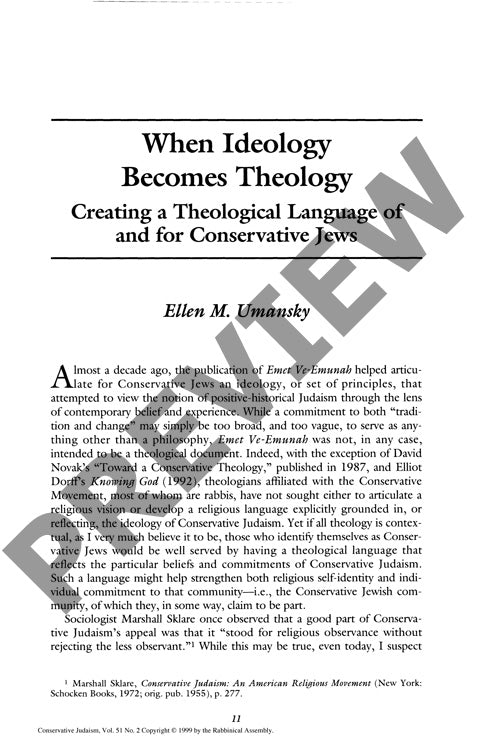When Ideology Becomes Theology Creating
Couldn't load pickup availability
Conservative Judaism faces a widening spiritual disconnect between clergy and laity, highlighting an urgent need for distinctive theological language that can bridge this gap. By examining the ideological framework of Emet Ve-Emunah and Solomon Schechter's concept of k'lal Yisrael, a new theological discourse emerges that honors both tradition and change. Historical analysis, incorporating previously marginalized voices from Jewish women's spirituality and early modern tkhines prayers, reveals how Conservative Judaism's vertical democracy—the integration of past, present, and future Jewish voices—can shape contemporary spiritual identity. Theological language rooted in peoplehood concepts like Ahavat Yisrael and Hovevei Zion demonstrates particular promise in strengthening religious self-identity and community commitment. While not attempting to create the definitive theology of Conservative Judaism, such contextual theological discourse can facilitate spiritual growth, deepen congregants' connection to the movement, and encourage lifelong religious engagement. This approach addresses the longstanding observance gap identified by scholars like Marshall Sklare and Samuel Heilman by focusing on spiritual rather than merely ritual connections, offering a theological framework that encompasses the diverse voices within k'lal Yisrael while maintaining Conservative Judaism's historical commitment to positive-historical Judaism.

More Information
-
Physical Description
-
Publication Information
Published
ISBN
-
Publication Credits
Ellen Umansky

